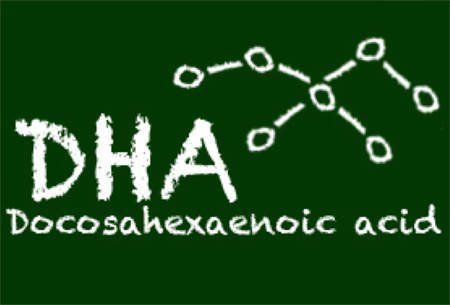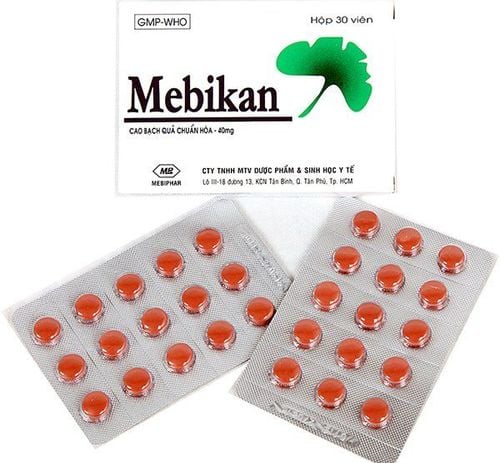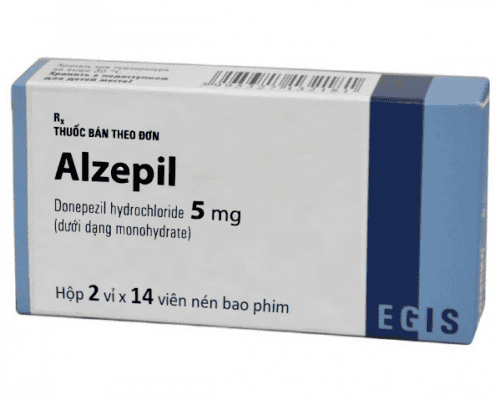This is an automatically translated article.
Posted by Doctor Vu Dung Kien - Department of General Internal Medicine - Vinmec Times City International Hospital
Previous studies have shown a link between consuming more omega-3 fatty acids DHA and a reduced risk of Alzheimer's disease. In contrast, lower serum DHA levels were associated with the accumulation of amyloid plaques in the brain, lower cognitive function, and smaller hippocampal volume.
1. Omega-3 in the prevention of Alzheimer's disease
Clinical trials evaluating omega-3s for preventing Alzheimer's disease or slowing cognitive decline in Alzheimer's patients have shown limited benefit. Furthermore, a recent systematic review concluded that trials using low-dose DHA supplements (<1000mg/day) for the prevention of Alzheimer's disease had no cognitive benefit in older adults. strong. These disappointing findings may be because previous studies on the use of DHA supplements for the prevention of Alzheimer's disease built on the assumption that omega-3 fatty acids easily and quickly cross blood-brain barrier.
New research shows that a much higher dose of docosahexaenoic acid (DHA) is needed to effectively fight Alzheimer's disease (AD). Study results explaining why omega-3 fatty acids failed to prevent Alzheimer's disease or slow its progression, the researchers found that among those taking omega-3 supplements, higher levels of DHA plasma levels are high, but cerebrospinal fluid (CSF) concentrations are relatively low.
Hussein Yassine, MD, associate professor of medicine and neurology at Keck School of Medicine, University of Southern California, a senior research fellow, said: “Despite the fact that we did deliver a relative dose large amounts of DHA, but we saw only modest increases in the levels of DHA in the cerebrospinal fluid. Therefore, blood levels do not reflect an increase in the brain.” As a result of an additional study, the researchers found that among individuals with the apolipoprotein E4 (APOE4) gene variant, levels increased. serum DHA concentrations after supplementation were even lower.” longer addition time to offset this effect” added Yassine.

The researchers hypothesized that a larger dose of DHA is required for the brain's biologically adequate response. They also hypothesized that the APOE4 gene variant is associated with reduced delivery of both DHA and eicosapentaenoic acid (EPA) to the brain prior to the onset of cognitive decline.
To test this hypothesis, researchers conducted a randomized, placebo-controlled study that included 33 individuals, all of whom had Alzheimer's risk factors but no cognitive impairment. All participants had a family history of Alzheimer's disease, were sedentary, and had a diet low in fatty fish. 15 participants carried the APOE4 gene variant. Of these people, 7 were in the placebo group and eight in the intervention group. The remaining 18 participants did not carry the APOE4 gene variant. All participants were given a daily B-complex vitamin (including 1mg vitamin B12; 100mg vitamin B6 and 800μg folic acid), which helps the body process omega-3s. Participants were then randomly assigned to receive DHA with 2152 mg/day or a placebo for 6 months. 26 participants had lumbar puncture and MRI scan, and 29 completed cognitive assessments at baseline and at 6 months. It's worth noting that the DHA dose in this study was much larger than those previously used in large clinical trials to test omega-3's preventive potential for Alzheimer's disease. In previous studies, the typical dose was 1000 mg/day or less.

2. Is high dose DHA necessary?
The main aim of the study was the change in the level of DHA in the cerebrospinal fluid. Secondary outcomes included changes in EPA levels in the cerebrospinal fluid, as well as hippocampal volume and cortical thickness as determined by MRI. Participants also underwent a series of tests to assess cognitive abilities.
Results showed that in participants in the DHA supplement group (n = 13), plasma DHA levels were 200% higher than in patients in the placebo group (n = 13). In contrast, cerebrospinal fluid concentrations were only 28% higher in the intervention group than in the placebo group (mean difference, 0.08 μg/mL; P < .0001).
The researchers also found that among APOE4 mutation carriers in the active intervention group, CSF DHA levels were lower, despite the fact that these patients received the same dose of DHA as non-carriers ( mean difference, 0.02 μg/mL ; P = 0.08) .
Similarly, CSF EPA concentrations in patients in the active intervention group increased by 43% compared with patients in the placebo group (mean difference, 0.008 μg/mL; P < .0001). The increase in EPA in the cerebrospinal fluid in the group that did not carry the APOE4 gene variant after supplementation was more than three-fold greater than that in the APOE4 gene variant carriers (mean difference, 0.006 μg/mL; P = 0.001).
Carriers of the APOE4 gene variant, despite having the same dose of DHA, have less omega-3s in the brain. This finding suggests that EPA is either being consumed, lost, or not effectively absorbed into the brain with the APOE4 gene variant," said Yassine. for changes in hippocampal volume (–0.002; P = 0.56) or cortical thickness (–0.11; P = 0.13). study participants, except for a few subjects that could not, and were statistically compared between treatment groups, prioritizing the active intervention group.

Yassine said: “Since this is an experimental study, we cannot draw broad conclusions that apply to many patient groups. To give omega-3s a chance and to be certain whether they can be used to prevent Alzheimer's disease, we also need to use much larger doses than in previous studies." "We will also need a concerted effort to involve a large group of subjects at risk for this disease to reach a conclusion. Doing small studies with lower doses will further provide information. mixed message," he added. Yassine's research team has secured funding for a larger trial. They are currently recruiting for the study, which will follow 320 participants for 2 years and will look at whether higher doses of DHA can slow cognitive decline in carriers of the APOE4 gene variant.

3. Are B vitamins the key to the problem?
Commenting on the findings for Medscape Medical News, Dr Melanie Plourde, De Sherbrooke University, Sherbrooke, Canada, who was not involved in the study, said the beneficial effects of DHA supplementation depend on the individual's vitamin B status. “There is some recent evidence to suggest that if you provide omega-3 supplements, there is no cognitive benefit if vitamin B status is inadequate,” says Plourde. "B vitamins help make more DHA in a form the brain can use." However, Plourde is also skeptical about the need for a 2000mg DHA supplement. "If you give 2000mg of DHA as a triglyceride, I think it's pretty useless, because it doesn't target the brain," says Plourde. "But you can get the same results at a much lower dose if you give your omega-3s with a specific formula to better target the brain." She also notes that a dose of 2000mg DHA can cause digestive upset in some people. "So there can be a lot of people who don't adhere to treatment. It's not for everyone."
Please dial HOTLINE for more information or register for an appointment HERE. Download MyVinmec app to make appointments faster and to manage your bookings easily.
Reference source: Medscape.com
SEE MORE
Identifying Alzheimer's disease through physical manifestations Dementia in the elderly: What you need to know Diagnosis and treatment of dementia in the elderly














